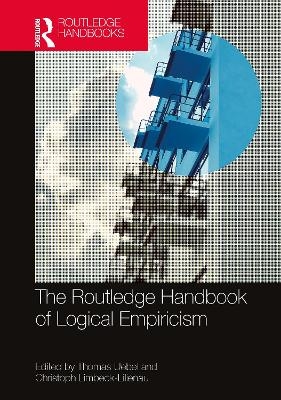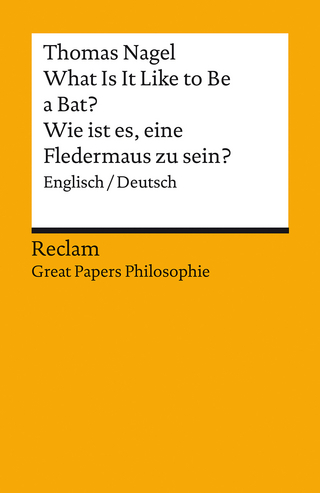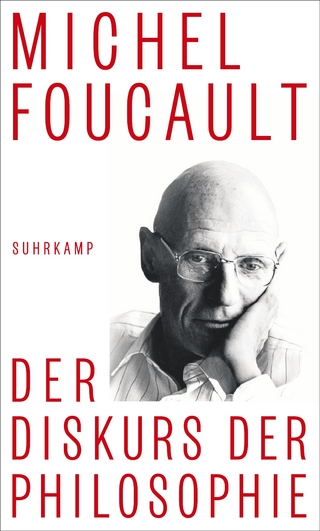
The Routledge Handbook of Logical Empiricism
Routledge (Verlag)
978-1-138-12200-0 (ISBN)
Logical empiricism is a philosophical movement that flourished in the 1920s and 30s in Central Europe and in the 1940s and 50s in the United States. With its stated ambition to comprehend the revolutionary advances in the empirical and formal sciences of their day and to confront anti-modernist challenges to scientific reason itself, logical empiricism was never uncontroversial. Uniting key thinkers who often disagreed with one another but shared the aim to conceive of philosophy as part of the scientific enterprise, it left a rich and varied legacy that has only begun to be explored relatively recently.
The Routledge Handbook of Logical Empiricism is an outstanding reference source to this challenging subject area, and the first collection of its kind. Comprising 41 chapters written by an international and interdisciplinary team of contributors, the Handbook is organized into four clear parts:
The Cultural, Scientific and Philosophical Context and the Development of Logical Empiricism
Characteristic Theses of and Specific Issues in Logical Empiricism
Relations to Philosophical Contemporaries
Leading Post-Positivist Criticisms and Legacy
Essential reading for students and researchers in the history of twentieth-century philosophy, especially the history of analytical philosophy and the history of philosophy of science, the Handbook will also be of interest to those working in related areas of philosophy influenced by this important movement, including metaphysics and epistemology, philosophy of mind and philosophy of language.
Thomas Uebel is Professor Emeritus of Philosophy at the University of Manchester, UK. His books include Empiricism at the Crossroads: The Vienna Circle’s Protocol-Sentence Debate (2007) and an edition of Neurath’s Economic Writings (2004). Christoph Limbeck-Lilienau is a Research Fellow at the University of Toronto, Canada, and principal investigator in the project Naturalizing Meaning (2021–24, FWF-grant J-4502-G). He is the author of Der Wiener Kreis (with F. Stadler, 2015) and editor of The Philosophy of Perception (2019).
Introduction Christoph Limbeck-Lilienau and Thomas Uebel Part 1: The Cultural, Scientific and Philosophical Context and the Development of Logical Empiricism 1. The Foundational Crisis of Modern Physics and its Cultural Significance Michael Stöltzner 2. The German Youth Movement at the Start of the 20th Century and Logical Empiricism Hans-Joachim Dahms 3. Dilthey, Historicism and Logical Empiricism Christian Damböck 4. Varieties of Neo-Kantian Influences Matthias Neuber 5. Hermann von Helmholtz and Logical Empiricism Michael Heidelberger 6. Ernst Mach and Early Logical Empiricism Elisabeth Nemeth 7. Bolzano and Brentano, and Logical Empiricism Mark Textor 8. French Conventionalism and the Vienna Circle Anastasios Brenner 9. Einstein and Logical Empiricism Fynn Ole Engler 10. The First Vienna Circle and the Erlangen Conference Christoph Limbeck-Lilienau 11. The Vienna Circle and the Ernst Mach Friedrich Stadler 12. The Berlin Group and the Society for Scientific Philosophy Nikolay Milkov 13. Women in Logical Empiricism Frederique Janssen-Lauret Part 2: Characteristic Theses of and Specific Issues in Logical Empiricism 14. Logic and the Foundations of Mathematics in Early Logical Empiricism Erich H. Reck 15. Conceptions of Truth in Early Logical Empiricism Pierre Wagner 16. Verificationism James Justus 17. Noncognitivism Anne Siegetsleitner 18. The Unity of Science Jordi Cat 19. The Deductive-Nomological Model of Explanation Stathis Psillos 20. The Partial Interpretation of Scientific Theories William Demopoulos 21. The Relative A Priori David J. Stump 22. Nonstandard Logicism Georg Schiemer 23. Probability in Logical Empiricism Marta Sznajder 24. Reichenbach and the Problem of Induction Flavia Padovani 25. Schlick, Carnap and Feigl on the Mind-Body Problem Sean Crawford 26. Hempel and Confirmation Theory Jan Sprenger 27. Carnap and Ontology Gregory Lavers 28. Neurath on Political Economy John O’Neill Part 3: Relations to Philosophical Contemporaries 29. The Vienna Circle’s Relationship with Wittgenstein Johannes Friedl 30. Cassirer and the Logical Empiricists Matthias Neuber 31. Critical Rationalism, the Vienna Circle and the Empirical Basis Problem Artur Koterski 32. The Lvov-Warsaw School and Logical Empiricism Jan Wolenski 33. Logical Empiricism in Northern Europe Ilkka Niiniluoto 34. Logical Empiricism in the Anglophone World: Early Receptions Christopher Pincock 35. Pragmatism and Logical Empiricism Massimo Ferrari Part 4: Leading Post-Positivist Criticisms and Legacy 36. Quine and Post-Positivism Richard Creath 37. Kuhn, Carnap and Logical Empiricism Gürol Irzik 38. The Bipartite Metatheory Conception of Philosophy Thomas Uebel 39. Logical Empiricism and Formal Epistemology Sahotra Sarkar 40. Carnap’s Conception of Reason A. W. Carus 41. Rethinking the Legacy of Logical Empiricism in North America Alan Richardson. Index
| Erscheinungsdatum | 29.12.2021 |
|---|---|
| Reihe/Serie | Routledge Handbooks in Philosophy |
| Verlagsort | London |
| Sprache | englisch |
| Maße | 174 x 246 mm |
| Gewicht | 893 g |
| Themenwelt | Geisteswissenschaften ► Philosophie ► Philosophie der Neuzeit |
| Naturwissenschaften | |
| ISBN-10 | 1-138-12200-9 / 1138122009 |
| ISBN-13 | 978-1-138-12200-0 / 9781138122000 |
| Zustand | Neuware |
| Informationen gemäß Produktsicherheitsverordnung (GPSR) | |
| Haben Sie eine Frage zum Produkt? |
aus dem Bereich


